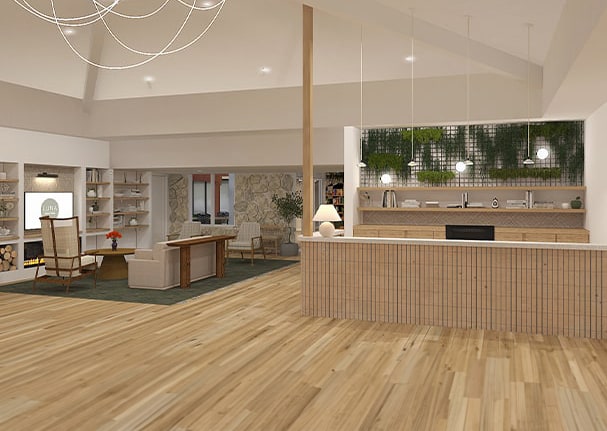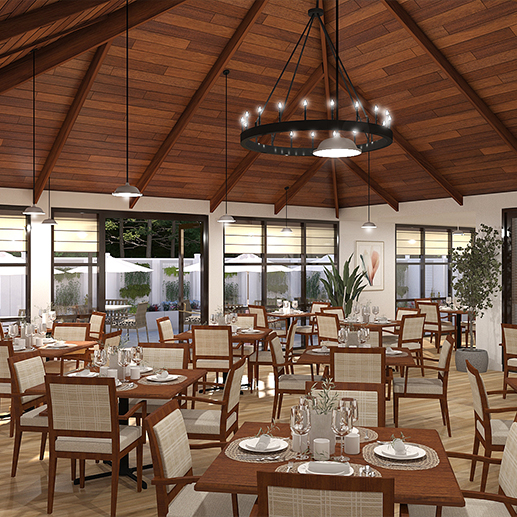As the world progresses and societies evolve, the issue of senior loneliness remains a prevalent and concerning problem. With advancements in technology and changes in lifestyle, seniors often find themselves isolated from their families and communities, leading to detrimental effects on their physical and mental well-being. However, combating senior loneliness is not an insurmountable challenge.
The golden years of life are meant to be cherished, but for many seniors, they can be overshadowed by feelings of loneliness and isolation. As we age, our social circles often shrink, and family members may live far away, leading to a decline in social interactions. Fortunately, assisted living communities have emerged as a beacon of hope, offering comprehensive solutions to combat senior loneliness. In this blog post, we will explore the consequences of senior loneliness, and various ways these communities help seniors lead happier, more connected lives.
Understanding Senior Loneliness
Loneliness among seniors is a multifaceted issue with various root causes. Some of the contributing factors include:
- Loss of loved ones: The passing of spouses, friends, or family members can leave seniors feeling bereft and disconnected.
- Retirement and reduced social interaction: After leaving the workforce, seniors may experience a significant decrease in social interactions, leading to feelings of isolation.
- Mobility limitations: Physical limitations due to age-related health conditions can restrict seniors’ ability to participate in social activities, leading to a sense of exclusion.
- Technological barriers: As technology advances rapidly, seniors who are not familiar with modern communication tools may find it challenging to stay connected with others.
Consequences of Senior Loneliness
Senior loneliness is more than just an emotional state; it can have serious repercussions on physical and mental health:
- Increased risk of depression and anxiety: Isolation can lead to a decline in mental health, exacerbating feelings of sadness and anxiety.
- Decline in cognitive function: Studies have shown that prolonged loneliness can accelerate cognitive decline, potentially leading to conditions like dementia.
- Weakened immune system: Chronic loneliness can compromise the immune system, making seniors more susceptible to various illnesses.
- Reduced life satisfaction: Loneliness can contribute to a reduced sense of purpose and overall life satisfaction.
Combatting Senior Loneliness: Strategies for Connection
We cannot deny the downsides of senior loneliness, but there are some strategies that can be used to decrease feelings of lonliness in seniors.
- Community Engagement: Encouraging seniors to participate in community activities, clubs, or volunteer work can provide opportunities to form new friendships and share common interests.
- Intergenerational Programs: Creating intergenerational programs that bring together seniors and younger generations can foster meaningful connections and bridge the generation gap.
- Technology Training: Offering technology workshops tailored to seniors can empower them to stay connected with loved ones through social media, video calls, and messaging platforms.
- Pet Therapy: Pets can be wonderful companions for seniors, offering unconditional love and reducing feelings of loneliness.
- Support Groups: Establishing support groups for seniors facing similar life transitions or challenges can provide a safe space for sharing experiences and fostering empathy.
- Senior Living Communities: For those who prefer a more supportive living environment, senior living communities can offer various activities and social interactions.
- Reach out as a Community: Encourage family members, neighbors, and friends to reach out to seniors regularly, even with simple acts like phone calls or visits.
Connection as a whole is extremely important for combatting senior loneliness, and assisted living can be supportive in alleviating some of the symptoms of loneliness.
Assisted Living: A Built-In Social Community for Seniors
Assisted living communities provide seniors with the opportunity to live among peers within a vibrant community. Residents engage in a variety of activities and events designed to foster friendships and social connections. Common areas, such as dining halls, recreation centers, and gardens, encourage organic interactions, where seniors can share stories, interests, and experiences. As residents participate in group activities and outings, they build lasting friendships, combatting the loneliness that can sometimes accompany aging.
Tailored Supportive Programs
Assisted living facilities recognize that each senior’s social needs are unique. They offer tailored supportive programs to cater to individual preferences and abilities. These programs include book clubs, arts and crafts classes, fitness groups, and educational seminars. By engaging in activities that interest them, seniors have the chance to bond with like-minded individuals, creating a sense of belonging and purpose.
Professional Staff and Caregivers
The compassionate staff and caregivers in assisted living facilities play a pivotal role in addressing senior loneliness. They not only provide essential medical care and assistance with daily activities but also act as companions and confidants. Building strong bonds with residents, these professionals offer emotional support, a listening ear, and the assurance that someone cares deeply about their well-being. Such relationships can greatly alleviate feelings of isolation.
Family Engagement and Visitation
Assisted living facilities encourage regular visits from family members and loved ones. Recognizing the significance of family ties, they create welcoming environments that facilitate visits and ensure that families can spend quality time together. Whether it’s during meals, recreational activities, or special events, these moments strengthen family connections and reinforce the support system that seniors need to thrive.
Mental Health Support
Assisted living facilities prioritize the mental health of their residents. Loneliness can exacerbate depression and anxiety, leading to a decline in overall well-being. To address this, facilities often offer counseling services and mental health support groups. These resources help seniors process their emotions, cope with changes, and foster a sense of community among those facing similar challenges.
Technology and Communication
Modern assisted living facilities harness the power of technology to keep seniors connected with the outside world. From video calls and email to social media platforms, technology bridges the gap between seniors and their distant friends and family members. Moreover, it can facilitate virtual group meetings, enabling seniors to participate in clubs or religious gatherings that align with their interests.
Combatting senior loneliness requires a concerted effort from individuals, families, communities, and governments alike. By understanding the root causes and consequences of senior loneliness, we can implement effective strategies to build connections and support our senior population. Assisted living facilities have emerged as invaluable sanctuaries that effectively tackle the pervasive issue of senior loneliness. Through community building, tailored programs, compassionate staff, family engagement, mental health support, and technology integration, these facilities empower seniors to lead fulfilling lives rich in meaningful connections. As we continue to recognize the importance of addressing senior loneliness, assisted living facilities stand as beacons of hope, providing the support and camaraderie necessary for seniors to age gracefully and joyfully.
Contact us at Luna Senior Living today to learn about how our assisted living community can help your loved ones feel less lonely.




















